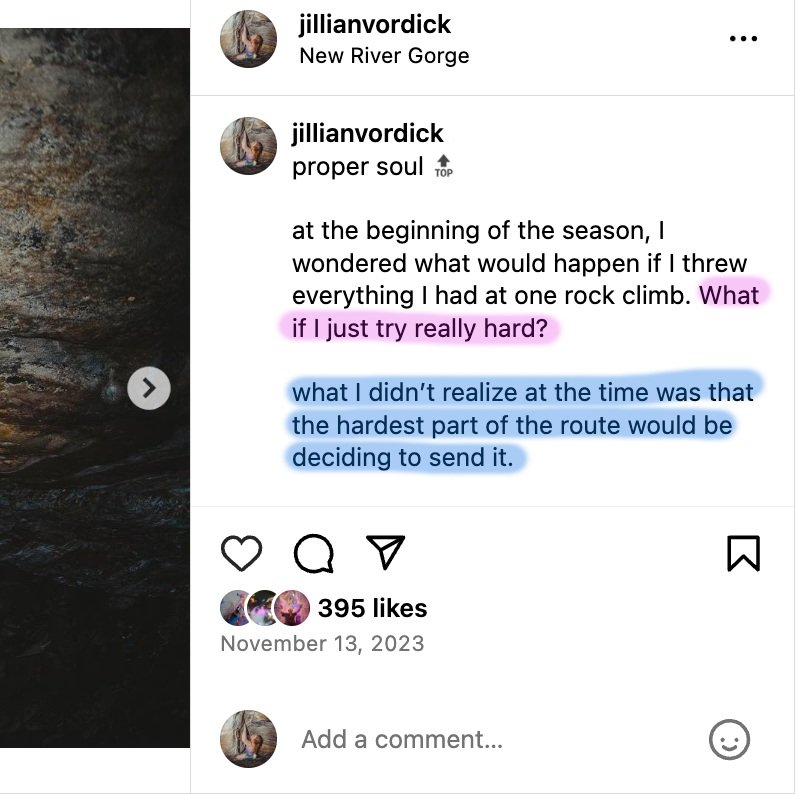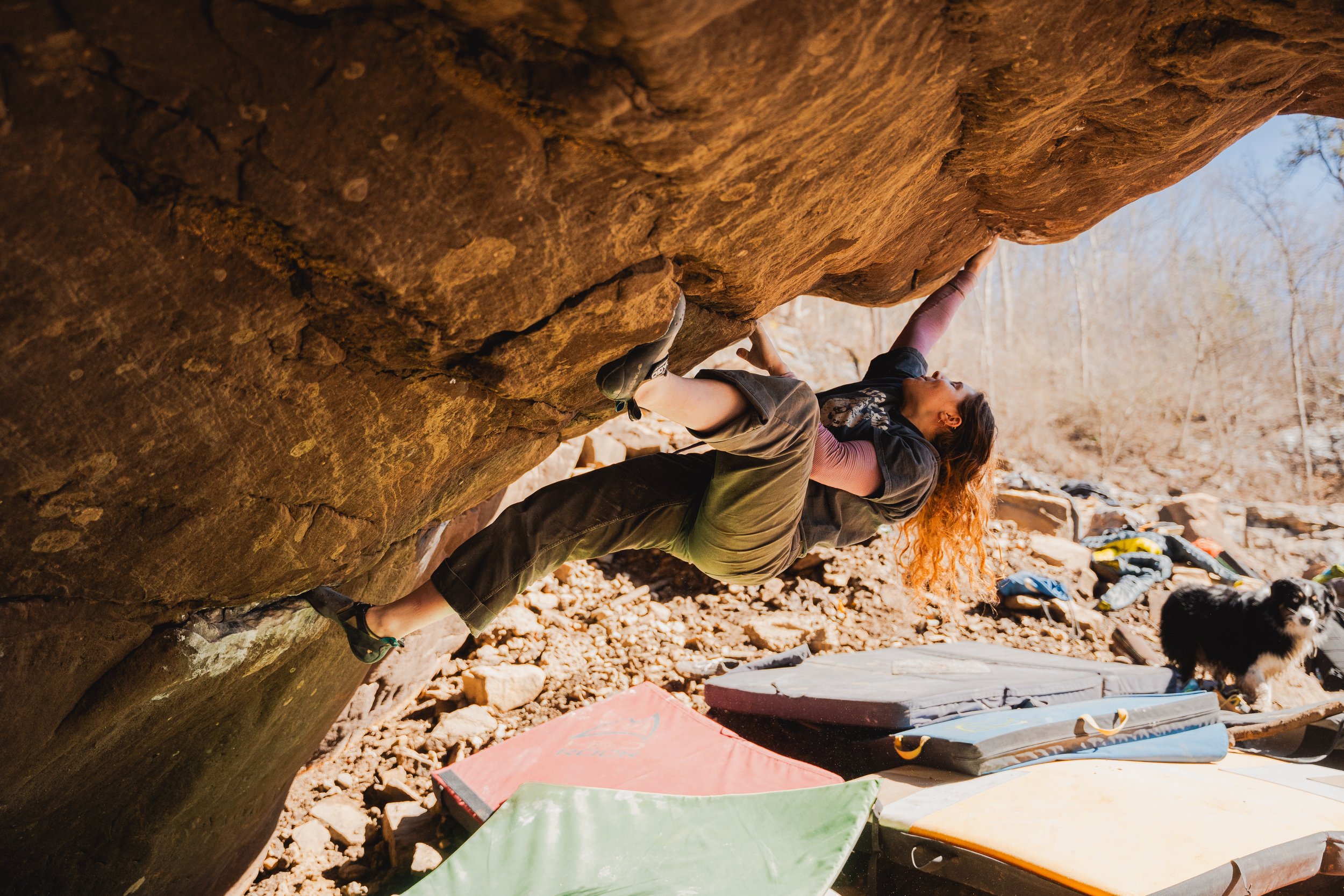studies
a space for finished and unfinished thoughts, streams of consciousness, questions, etc.
scroll down to view short articles that attempt at the intertwining of climbing and philosophy.

Difficult Actions: is climbing success up to us?
The next time you find yourself at the cliff blaming the conditions, or your height, or your shoes, or your belayer, or your genetics, try reminding yourself that all things considered, it is truly only up to you to succeed at whatever you’re trying to climb. You may find this scary, but it can’t be scarier than thinking something or someone else will reach your full potential for you.

Difficult Actions: How or Why?
John McClure asks, “when people explain difficult actions, is the causal question how or why?” As climbers, we’re no strangers to difficult questions. Nor are we unfamiliar with asking ourselves what we’ve gotten ourselves into. As it turns out, there are many ways to explain difficult actions. But what type of explanation is most interesting to us? McClure et al. find through empirical results that when participants are asked what type of information best explains a difficult (obstructed) action, they prefer to ask “how?” These results are attributed to participants seeking information that is most “surprising” or “abnormal.” However, I want to push back on this assumption that asking “how” is most surprising or abnormal. In fact, I propose that asking “how” should really always be secondary to asking “why.”

Life is a Praxis
The Aristotelian concepts of praxis and poesis differentiate human activities done as ends in themselves and as mere means for subjective ends. Praxis as activity as its own end lends itself to a reformation of Dave Hume’s praxis climber character who he attaches to success and achievement. Rather, for the praxis climber, climbing really is life.
these bi-weekly blog posts are in response to the following inquiry:
is it possible to rationally choose to do things that you should be quite confident will be difficult to do?
how can we keep going when, in the middle of doing something, it gets really hard?
when should we quit?
and when applied to rock climbing:
why seek out a means that is sufficiently difficult yet still attainable?
how can can the reason “because it’s fun” go in rationalizing attempting something which might be impossible?
what is the difference between wanting to do what feels most difficult, wanting to have done what felt the most difficult, and wanting to have done what should’ve felt the most difficult?
these posts will build on each other as I attempt to answer these questions, though I imagine I’ll produce more further questions than answers.
- Jillian
readings
Weeks 1-2: Starting the process (setting goals and “why do this?”)
E. Locke, “Goal Setting and Task Performance”
E. Locke, “The Application of Goal Setting to Sports”
O. Balaban, “Praxis and Poesis in Aristotle’s practical philosophy”
The Praxis Climber (https://www.ukclimbing.com/articles/features/praxis_protos_and_patrias-3808)
Weeks 3-4: Justification and expectations
J. McClure, “When People Explain Difficult Actions, is the Causal Question How or Why?”
N. Southwood & D. Wiens, “Devoting ourselves to the manifestly unobtainable”
B. Marusic, “Belief and difficult action”
Weeks 5-6: Trying
P. Faulkner, “Really Trying or Merely Trying”
J.S. Russel, “Striving, entropy, and meaning”
F. Adams, “Trying”
J. Hornsby, “Trying to act”
Weeks 7-8: Trying pt. 2
J. Morton & S. Paul, “Grit”
B. Marusic, “No grit without freedom”
M. Biss, “On trying too hard”
M. Brady, “Suffering in sport: why people willingly embrace negative emotional experiences”
Weeks 9-10: Courage and failure
C. Rioux, “Hope as a source of grit”
J. Smith, “What must I know to be brave?”
B. Clack, How to be a failure, excerpts
J. Pike, “Action theory and the value of sport”
Weeks 11-12: Failure, risk, and quitting
R. Duits, “Mountaineering, Myth and the Meaning of Life: psychoanalysing alpinism”
J. Asplin, “Benefits of quitting: “more quit, more grit”
H. Battaly, “Quitting, procrastinating, and slacking off”
Week 13: Persevering
G. Breivik, “Sport as part of a meaningful life”
S. Loland, “A well balanced life based on the joy of effort: Olympic hype or a meaningful ideal?”



